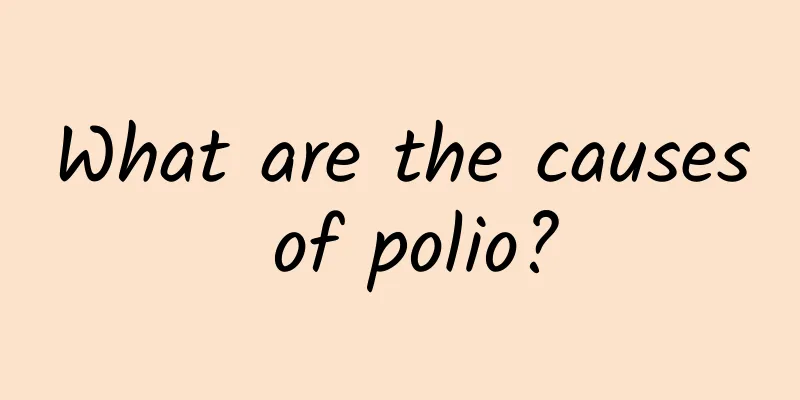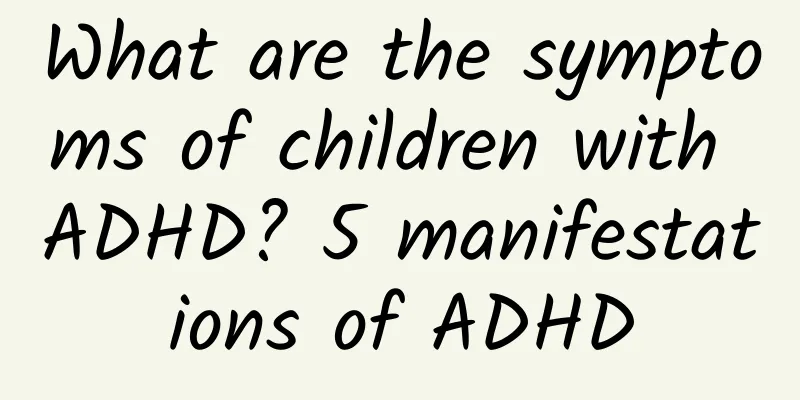What are the symptoms of iron deficiency in babies? What should be paid attention to when babies are iron deficient?

|
There are many symptoms of iron deficiency in babies, such as irritability, reduced activity, pale skin, decreased appetite, nausea, dizziness, etc. It is recommended to go to the hospital for a check-up when such symptoms are found. If iron deficiency occurs, it must be supplemented as soon as possible and cooperate with the doctor to supplement according to the amount. Only in this way can it be effective. Too much is also bad for the body. Iron is a trace element required by the human body. The amount required by the human body is very small, but the role of iron in the human body is indispensable and irreplaceable, especially for infants and young children who grow and develop at a relatively fast rate. Parents should pay more attention to iron supplementation in their children's diet, otherwise it will have an adverse effect on the healthy growth of their children. So, what are the symptoms of iron deficiency in babies? 1. Generally, before the anemia blood test shows abnormalities, babies often have symptoms such as irritability, lack of energy, reduced activity, pale skin, deformed nails (ingrown nails), etc. Parents can observe whether the baby's complexion is pale or yellow, and whether the lip membranes and eyelid mucosa are light in color. 2. Babies with iron deficiency anemia will have loss of appetite, pale complexion, nausea and vomiting, and changes in the digestive and hematopoietic systems such as hepatosplenomegaly. It can also cause brain tissue hypoxia and subsequent changes in the nervous system. Anemia will eventually affect the baby's intellectual development. Older school-age children may also have problems such as inattention, reduced comprehension, slow reaction, and poor memory. 3. Older children may tell their parents that they are always tired, dizzy, have tinnitus, palpitations and shortness of breath; some children even have the so-called "pica", these children particularly like to eat tree bark, sand, newspaper, raw rice and raw flour. 4. Babies with severe iron deficiency anemia may suffer from glossitis, angular cheilitis, and even slow growth and development. The body resistance of the child is reduced, and the child is prone to colds and various infections, such as indigestion, diarrhea, pneumonia, etc. Therefore, parents should attach great importance to it, detect it early, and give their children iron supplements in time. If the baby's iron deficiency symptoms are mild, parents should pay special attention to improving their children's diet so that they can take in iron in their daily diet, that is, feed them foods rich in iron. If the child is picky about eating, parents should correct it in time, cultivate good eating habits for the child, and ensure a balanced diet for the child. |
<<: How to treat verrucous nevus in children?
Recommend
How to treat constitutional jaundice
Generally speaking, constitutional jaundice is a ...
Diet therapy for diarrhea syndrome in children
Diarrhea in children is a very common symptom. Ma...
What to do if your two-year-old baby doesn't speak
The best language development stage for babies is...
How to prevent colds in children in autumn 4 tips to effectively prevent colds in children in summer and autumn
The weather is cool and hot at the turn of summer...
How to prevent neonatal jaundice?
How to prevent neonatal jaundice? 1. First of all...
Things to pay attention to in the middle stage of children's kidney disease
Kidney disease is an extremely terrible disease t...
What are the polio tests?
Polio is an infectious disease that seriously end...
How to take medicine for diarrhea in children? Follow these medication principles for diarrhea in children
Pediatric diarrhea is a common pediatric disease....
Traditional Chinese Medicine for Treating Pneumonia in Children
Pediatric pneumonia is a respiratory disease that...
What should I do if my child has autumn diarrhea and coughs at the same time?
When a child has just recovered from autumn diarr...
Can breast milk diarrhea heal itself without treatment?
Can breast milk diarrhea heal itself without trea...
The best treatment for polio
The treatment of polio is what every parent is mo...
How to prevent influenza in autumn? What are the methods to prevent allergic rhinitis in autumn?
How to prevent influenza in autumn? 1. Wash your ...
Will I die if I have patent ductus arteriosus?
Will you die if you have patent ductus arteriosus...
Which hospital is better for treating acute laryngitis in children?
Many patients are unfamiliar with how to choose a...









